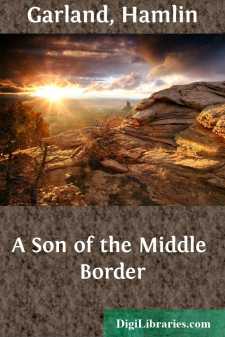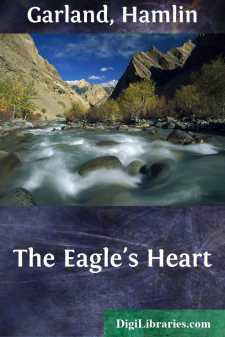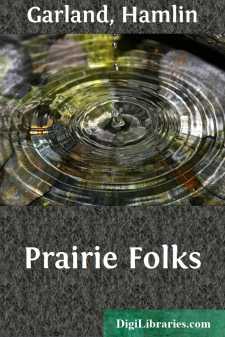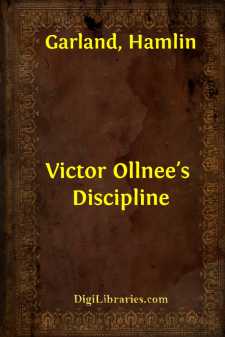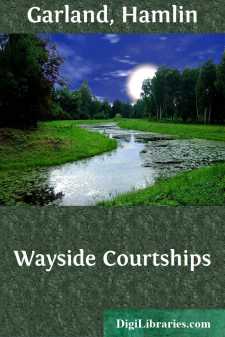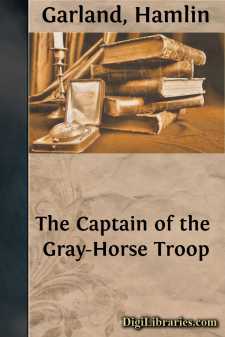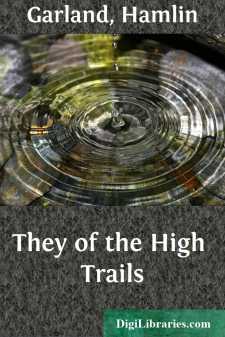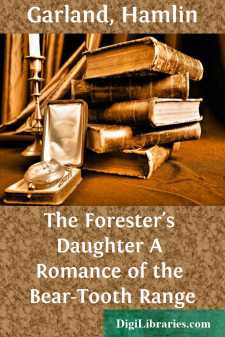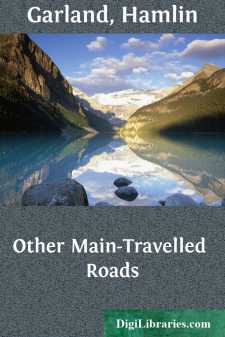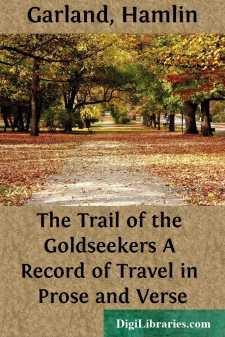Categories
- Antiques & Collectibles 13
- Architecture 36
- Art 48
- Bibles 22
- Biography & Autobiography 813
- Body, Mind & Spirit 142
- Business & Economics 28
- Children's Books 14
- Children's Fiction 11
- Computers 4
- Cooking 94
- Crafts & Hobbies 4
- Drama 346
- Education 46
- Family & Relationships 57
- Fiction 11829
- Games 19
- Gardening 17
- Health & Fitness 34
- History 1377
- House & Home 1
- Humor 147
- Juvenile Fiction 1873
- Juvenile Nonfiction 202
- Language Arts & Disciplines 88
- Law 16
- Literary Collections 686
- Literary Criticism 179
- Mathematics 13
- Medical 41
- Music 40
- Nature 179
- Non-Classifiable 1768
- Performing Arts 7
- Periodicals 1453
- Philosophy 64
- Photography 2
- Poetry 896
- Political Science 203
- Psychology 42
- Reference 154
- Religion 513
- Science 126
- Self-Help 84
- Social Science 81
- Sports & Recreation 34
- Study Aids 3
- Technology & Engineering 59
- Transportation 23
- Travel 463
- True Crime 29
Hamlin Garland
Hamlin Garland (1860-1940) was an American novelist, short story writer, and essayist known for his realist portrayals of Midwestern farm life. His most famous work, "Main-Travelled Roads" (1891), is a collection of short stories that vividly depict the hardships and struggles of rural farmers. Garland received the Pulitzer Prize for Biography in 1922 for his autobiography "A Daughter of the Middle Border."
Author's Books:
Sort by:
by:
Hamlin Garland
Home from the War All of this universe known to me in the year 1864 was bounded by the wooded hills of a little Wisconsin coulee, and its center was the cottage in which my mother was living alone—my father was in the war. As I project myself back into that mystical age, half lights cover most of the valley. The road before our doorstone begins and ends in vague obscurity—and Granma Green's...
more...
by:
Hamlin Garland
HIS YOUTH Harold was about ten years of age when his father, the Rev. Mr. Excell, took the pastorate of the First Church in Rock River. Many of the people in his first congregation remarked upon "the handsome lad." The clear brown of his face, his big yellow-brown eyes, his slender hands, and the grace of his movements gave him distinction quite aside from that arising from his connection with...
more...
by:
Hamlin Garland
UNCLE ETHAN RIPLEY. Uncle Ethan had a theory that a man's character could be told by the way he sat in a wagon seat. "A mean man sets right plumb in the middle o' the seat, as much as to say, 'Walk, gol darn yeh, who cares?' But a man that sets in one corner o' the seat, much as to say, 'Jump in—cheaper t' ride 'n to walk,' you can jest tie to."...
more...
by:
Hamlin Garland
VICTOR READS THE FATEFUL STAR Saturday had been a strenuous day for the baseball team of Winona University, and Victor Ollnee, its redoubtable catcher, slept late. Breakfast at the Beta Kappa Fraternity House on Sunday started without him, and Gilbert Frenson, who never played ball or tennis, and Arnold Macey, who was too effeminate to swing a bat, divided the Sunday morning Star between them. "See...
more...
by:
Hamlin Garland
AT THE BEGINNING. She was in the box; he was far above in the gallery. He looked down and across and saw her sitting there fair as a flower and robed like a royal courtesan in flame and snow. Like a red torch flamed the ruby in her hair. Her shoulders were framed in her cloak, white as marble warmed with firelight. Her gloved hands held an opera glass which also glowed with flashing light. His face...
more...
by:
Hamlin Garland
A CAMP IN THE SNOW Winter in the upper heights of the Bear Tooth Range is a glittering desolation of snow with a flaming blue sky above. Nothing moves, nothing utters a sound, save the cony at the mouth of the spiral shaft, which sinks to his deeply buried den in the rocks. The peaks are like marble domes, set high in the pathway of the sun by day and thrust amid the stars by night. The firs seem...
more...
by:
Hamlin Garland
THE GRUB-STAKER I "There's gold in the Sierra Blanca country—everybody admits it," Sherman F. Bidwell was saying as the Widow Delaney, who kept the Palace Home Cooking Restaurant in the town of Delaney (named after her husband, old Dan Delaney), came into the dining-room. Mrs. Delaney paused with a plate of steaming potatoes, and her face was a mask of scorn as she addressed the group,...
more...
by:
Hamlin Garland
THE HAPPY GIRL The stage line which ran from Williams to Bear Tooth (one of the most authentic then to be found in all the West) possessed at least one genuine Concord coach, so faded, so saddened, so cracked, and so splintered that its passengers entered it under protest, and alighted from it with thanksgiving, and yet it must have been built by honorable men, for in 190- it still made the run of one...
more...
by:
Hamlin Garland
WILLIAM BACON'S MAN I The yellow March sun lay powerfully on the bare Iowa prairie, where the ploughed fields were already turning warm and brown, and only here and there in a corner or on the north side of the fence did the sullen drifts remain, and they were so dark and low that they hardly appeared to break the mellow brown of the fields. There passed also an occasional flock of geese, cheerful...
more...
by:
Hamlin Garland
ANTICIPATIONI will wash my brain in the splendid breeze,I will lay my cheek to the northern sun,I will drink the breath of the mossy trees,And the clouds shall meet me one by one.I will fling the scholar's pen aside,And grasp once more the bronco's rein,And I will ride and ride and ride,Till the rain is snow, and the seed is grain.The way is long and cold and lone—But I go.It leads where...
more...


